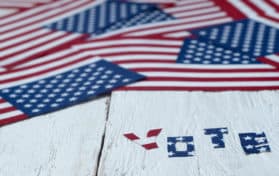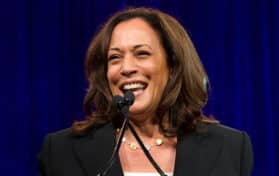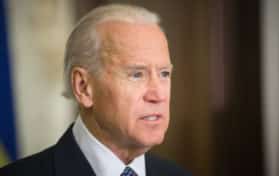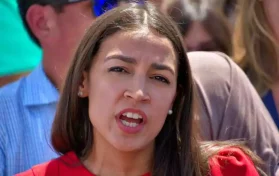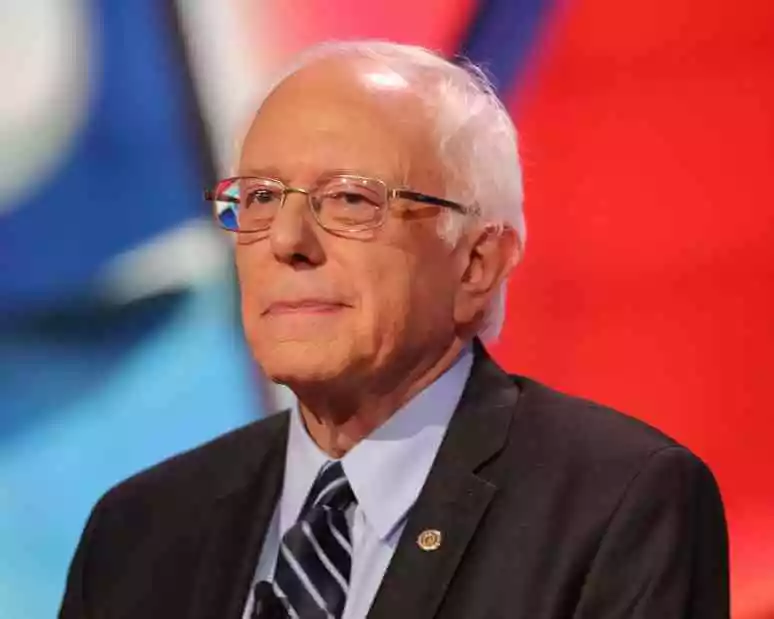
Bernie Sanders is an Independent Senator from the state of Vermont. Senator Sanders is a self-described Democratic Socialist. He has run for president of the United States twice, in 2016 and again in 2020. Although Sanders has never made it past the Democratic primaries, his two campaigns have garnered a great deal of attention, particularly among young voters. Many college students and other young adults brandished a “Feel the Bern” bumper sticker on their vehicles, and the Democratic Party began to pay attention to the progressive policies which seemed to garner Sanders a large “young voter” voting bloc.
| Celebrated Name: | Bernie Sanders |
| Real Name/Full Name: | Bernard Sanders |
| Gender: | Male |
| Age: | 80 |
| Birthdate: | September 8, 1941 |
| Birthplace: | New York City, NY |
| Nationality: | American |
| Height: | 6 ft. 0 in. |
| Weight: | 198 lb. |
| Sexual Orientation: | Straight |
| Marital Status: | Married |
| Wife/Spouse | Deborah Shilling (m. 1964, d.1966); Jane O’Meara (m. 1988 – present) |
| Children/Kids: | One son: Levi; Three stepchildren – Dave Driscoll, Carina Driscoll, Heather Driscoll Titus |
| Dating/Girlfriend Name: | N/A |
| Is Bernie Sanders Gay? | No |
| Highest Political Office: | United States Senator |
| Profession: | Politician |
| Colleges Attended: | Brooklyn College; University of Chicago |
| Degrees: | Bachelor of Arts, Political Science |
| Salary: | $174,000 |
| Net Worth in 2021: | $3 million |
Biography: Early Life and Family
Bernie Sanders was born in the New York borough of Brooklyn on September 8, 1941. His mother, Borothy Glassberg Sanders, was the daughter of Jewish immigrants from Poland. Bernie’s father, Elias Ben Yehuda Sanders was born in the Austro-Hungarian empire (now a part of Poland); Elias Sanders immigrated to the United States at the age of seventeen. He would later become a paint salesman.
Bernie Sanders has one brother, Larry.
The Sanders family lost many relatives who had not come to the United States during the Holocaust.
Sanders grew up in Midwood, Brooklyn. Bernie attended public school 197, where he played basketball. He also attended Hebrew school in the afternoons prior to his bar mitzvah in 1954.
Attending James Madison High School, Sanders participated in track meets and began dabbling in politics for the first time. He ran for a position as the student body president, but he wasn’t successful. Shortly after Sanders graduated high school, his mother, Dorothy, passed away. His father would pass away within a few years of losing his wife.
Bernie Sanders would attend Brooklyn College for one year before he transferred to the University of Chicago, where he earned a Bachelor of Arts degree in Political Science.
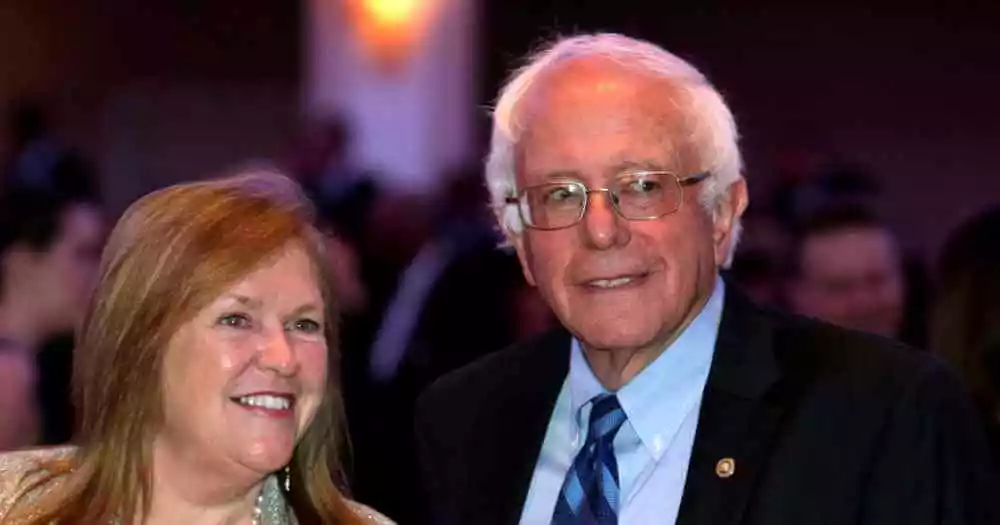
Personal Life
Bernie Sanders met and married Deborah Shiling Messing, his first wife, in 1963. They would divorce by 1966. The couple had no children together. Sanders would remarry Jane O’Meara Discoll on May 29, 1988. At the time, Sanders was the mayor of Burlington, Vermont, and the couple went to the Soviet Union, claiming it was part of Sanders’ duties as mayor of a small town in Vermont.
Bernie Sanders has one biological child. He had a son, Levi, with his girlfriend at the time, Susan Campbell Mott. Sanders considers his three step-children to be his own. His step-children include: Dave Driscoll (born in 1975), Heather Driscoll Titus (born in 1971), and Carina Driscoll (born in 1974).
Bernie Sanders has a total of seven grandchildren. His son Levi has three children, and he has a combined total of four grandchildren through his step-children.
Sanders has a close personal relationship with his brother Larry. Larry now lives in England and is involved in politics there. He is a member of the Oxfordshire County Council, where he was a Green Party County Councillor representing the East Oxford division. Bernie Sanders has credited his brother with many of his beliefs regarding social programs. He once told a CNN reporter that his brother Larry “actually introduced me to a lot of my ideas.”
Age, Height, and Weight
Bernie Sanders is 80 years of age. He is 6′ tall, and he is said to weigh about 198 pounds.
Net Worth
Bernie Sanders is said to have a net worth of $3 million, and this has brought a great deal of ire from Sanders’ critics. Although Sanders’ family came from humble means – Larry Sanders has said that the family never went hungry but big purchases never happened – Sanders has managed to become rather wealthy over the years.
Sanders and his first wife bought a summer home in Vermont. However, the pair divorced.
Sanders and his second wife, Jane, have three homes: a row house in a historic residential neighborhood in Washington, DC; a summer home on a lake in North Hero (a city in Vermont); a family home in Burlington. Sanders’ wife was once the president of Burlington College in Vermont; the college is now no longer in operation. Much of Sanders’ net worth is due to the value of these three homes.
CNBC reports that the bulk of Sanders’ wealth comes from his books and book signing events. He published three books between 2016 and 2018, including Our Revolution: A Future to Believe in; Bernie Sanders’ Guide to Political Revolution; and Where We Go From Here: Two Years in the Resistance. From the sales of these books, Sanders has made a little over $1 million royalties between 2016 and 2018.
Career Outside of Politics
Sanders returned to New York City once he graduated from the University of Chicago. While living there, he worked a number of jobs. He was a teacher for the Head Start program. He also worked as a carpenter and as a psychiatric aide. However, in 1968, he would move to a very small town in Vermont – Stannard.
His work history in Stannard is as eclectic as his employment back in New York. He once again worked as a carpenter, but he also worked as a filmmaker, a writer, and one who both created then sold “radical film strips” to schools in addition to other educational materials.
Although he wasn’t fully employed by the newspaper, Sanders wrote a number of articles for The Vermont Freeman.
Sanders also wrote for and worked as a director for the American People’s Historical Society.
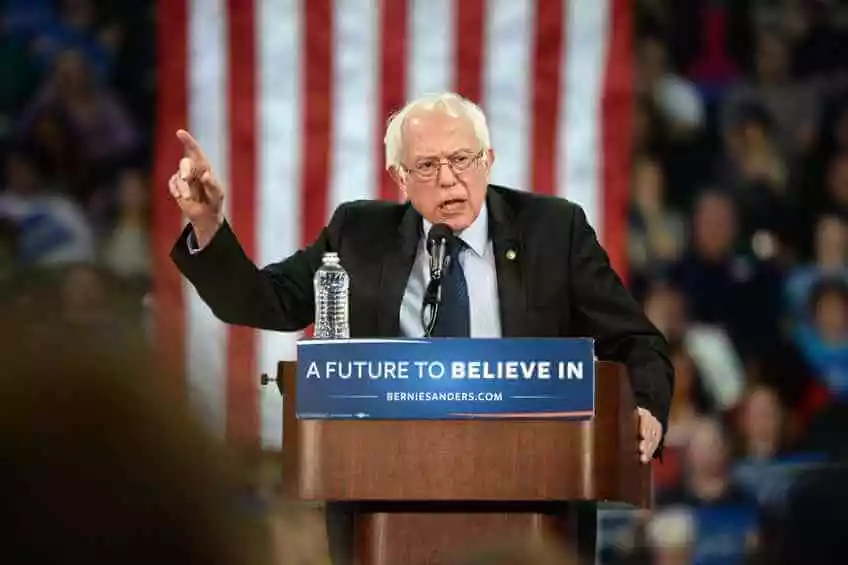
Career in Politics
Bernie Sanders ran for several offices and positions unsuccessfully before he became the mayor of Burlington, Vermont.
In 1980, Sanders announced that he would be running for the mayoral position. Even then, Sanders was considered a progressive candidate. A fellow potential candidate, Greg Guma, whom the Citizens’ Party wished to nominate for their candidate, declined. At the time, he said it would be difficult to run against another progressive.
Sanders ran against three other candidates. He won by ten votes.
Sanders ran for re-election in 1982, and he had the support of both independents as well as the Citizens’ Party. He defeated two other candidates.
He ran again in 1984; this time he won without much opposition. Sanders would seek election as the governor of Vermont in 1986, but he decided to run for a fourth term for mayor of Burlington when he lost the gubernatorial bid.
Once he left his position as mayor, Sanders worked as a lecturer at Harvard University in the Kennedy School of Government. He also held a similar position at Hamilton College for one year (1991).
Sanders has always called himself a socialist; he did so as mayor of Burlington.
Bernie Sanders would also host a public access television program during the 1980s titled Bernie Speaks with the Community.
In 1988, the incumbent sitting in Vermont’s at-large congressional district decided to run for a seat in the United States Senate. Sanders ran unsuccessfully for this seat, but, in 1990, Sanders would run a second time and win by a margin of 56 percent to 39 percent.
Sanders was the second Independent candidate in the history of the United States House of Representative. He was also the second socialist to be elected. Sanders held the seat from 1991 to 2007, when he decided to run for a United States Senate position.
In 1991, Sanders founded the Congressional Progressive Caucus, a group that is only recently become very vocal regarding legislation. Ironically, Sanders has never officially joined the Democratic Party (although most members of the Progressive Caucus are registered Democrats).
Perhaps Sanders is best known for his two unsuccessful bids for the presidency. He ran in 2016 – again, as an Independent who characterized himself as a “Democratic socialist.” Ironically, while the bulk of Americans rejected Sanders, many of his supporters were young college students who strongly supported the programs Sanders promised, including free tuition or the forgiveness of student loans.
Sanders also made socialist ideas a large part of his campaign. He said shortly after launching his campaign, “I don’t believe that the men and women who defended American democracy fought to create a situation where billionaires own the political process.”
This idea did garner Sanders a strong, albeit rather small, following.
Sanders won 23 primaries and 46 percent of the delegates pledged to Hillary Clinton, the eventual 2016 Democratic nominee. Eventually, emails from the Democratic National Committee showed that the organization had worked to keep Clinton as the nominee rather than Sanders. However, Sanders would eventually bow out of the race and throw his support behind Clinton. He also asked his supporters to “keep up the political revolution.”
In 2020, Sanders ran once more. He wasn’t considered the “underdog” that he had been in the 2016 campaign, and once more, he garnered a small but highly supportive following. By September 2019, Sanders’ campaign was the first to reach one million donors. He was usually second place behind Joe Biden until Elizabeth Warren and Kamala Harris entered the presidential race. However, for a short time in early 2020, Sanders was polling ahead of them all.
By April 2020, Sanders had announced that he was suspending his campaign. Within one week, he had announced his support for Joe Biden as the front runner of the Democratic party.
At 80, it is uncertain whether Sanders will run again, but his ideology has gained momentum among voters, and, arguably, he has changed the way people vote in the presidential election process.


